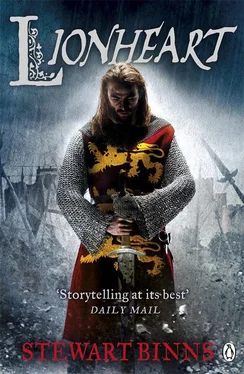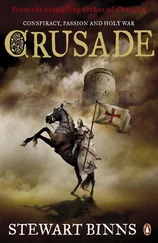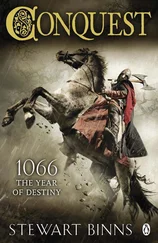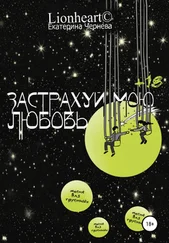Life’s course seemed fixed for me; I had done well, especially for an Englishman, and, as often as I could, I remembered to tell myself to count my blessings. But a life with a secure future is not necessarily a contented one. I often yearned for more, but what ‘more’ might be was never clear to me. When the yearnings became stronger, I made them go away by convincing myself that everyone wanted more in their lives – money, women, adventure, fame – and that it was childish to crave unattainable rewards.
Although I could make the hankerings disappear for a while, they would always come back, especially during the long cold winters in our meagre barracks in Westminster. Being a professional soldier appeared to offer a life of adventure and reward, but it was usually monotonous and dreary. Apart from occasional skirmishes against the Welsh princes, when we would reinforce the King’s garrisons at Glastonbury and Gloucester, we spent most of our time providing the King’s bodyguard and enduring the endless tedium of court ceremonials.
I had led my squadron on two of the King’s forays against raiders in the Scottish borders, but the actions had been brief and routine. One had brought but a brief glimpse of the enemy – and, even then, only of their rear ends as they fled into the Cheviots to skulk in their hilltop lairs – and the other had been no more than a hunting expedition, as we ran down and despatched a fleeing band of brigands who were too frightened to stand and fight.
But I had been involved in one serious encounter, one that had won me my knight’s pennon and bloodied me in the forbidding truths of war.
It happened in 1171, shortly after I had been given command of my own conroi of cavalry. They were a motley assembly: a few reliable Anglo-Normans; half a dozen trustworthy Englishmen; and a dubious selection of Welsh, Bretons and Angevins, whose only loyalty was to the purse on offer. We had been sent by King Henry to join a small force led by Raymond FitzGerald, a powerful warlord from Pembroke and second-in-command to Richard de Clare, Second Earl of Pembroke, known to everyone as ‘Strongbow’.
De Clare and FitzGerald were made of stern stuff. The offspring of marriage settlements between Norman lords who had invaded South Wales and the daughters of Welsh princes whose domains had been surrendered, they had been raised on the lawless fringes of the Norman Empire.
FitzGerald was the grandson of Nest, daughter of Rhys ap Tewdwr, who had been described as the ‘Helen of Wales’. Her beauty had led her into the bed of Henry Beauclerc, King Henry’s grandfather. Nothing daunted FitzGerald, and when Strongbow asked him to lead an expedition to Ireland – to begin the conquest of the island on behalf of the King – he took only 10 knights and 100 men, including my conroi of 25 cavalry.
We landed at Baginbun Head on the Hook Peninsula, near Waterford, where we were besieged in our hastily fortified camp by a combined force of Irishmen and Ostmen. Facing an army at least 3,000 strong, we were vastly outnumbered. But when FitzGerald saw their chaotic and ill-disciplined approach, he devised a cunning ploy.
We had rounded up a large herd of cattle shortly after our landing and enclosed them in our compound. I was ordered to set them loose and use my horsemen to drive them headlong into the oncoming enemy ranks. The terrified cattle careened into the enemy like a battering ram, bowling over the front ranks like skittles and scattering most of the rest. FitzGerald then led his infantry in a charge, and they proceeded to cut down the hapless remnants in large numbers.
I then pursued those fleeing the scene; we killed dozens and rounded up many more. Some we ran down on horseback, but when our mounts became exhausted we dismounted and scoured the countryside on foot, inflicting more slaughter. It was the worst bloodletting I had been involved in.
It was one-sided and brutal, and I lost all sense of danger. As night drew in, many of my men receded into the gloom and, save for a few, I became detached from the rest of the conroi. When I checked who was with me, I felt suddenly alarmed that none seemed reliable. My English and Norman colleagues were nowhere to be seen, and I appeared to have only a small contingent of Angevins and Bretons. I became concerned; I had made the fundamental mistake of acting without thinking of the consequences. Then, out of the darkness, a dozen or more Ostmen were upon us in an instant. Instead of coming to my side as a disciplined unit, and despite my orders not to do so, my men scattered in every direction. Fortunately, most of the Ostmen followed them, sensing blood. Even so, I was left with four adversaries, all seething with anger from the mauling they had been given earlier.
I acted without hesitation; my training and discipline took over, and I launched myself at them rather than wait for their assault. For the first time, I realized how effective my years of training had been. I could move with more fluid speed than my adversaries could muster, and my blows were more accurate and powerful. I cut them down without mercy, and although I suffered a few gashes, mostly absorbed by my armour – and one heavy blow to the side of my helmet, which made me reel a little – within a few moments all four men were at my feet, their blood mingling in pools.
There is nothing like fresh blood. It is both disgusting – after all, it signifies pain and death – and captivating, the essence of our lives, like the best of wine. I stared at the ever-increasing flow from the now lifeless bodies and thought about the sons, husbands and fathers I had just killed. All their deeds and memories were now seeping into the ground like water spilled from a pail.
The bodies did not move, nor did they breathe; I was surrounded by the gloom of dusk and the silence of death. I had lost all trace of my men and thought better of stumbling into any more of the enemy, so I found a small gulley to hide in for the night. I did not sleep at first – my heart pumped from the day’s ferment, and my mind was full of thoughts about the drama of the encounter – but eventually I fell into a fitful sleep.
My slumber was full of vivid dreams, the most powerful of which would recur for the rest of my life. It was fanciful, of course, but it seemed so real.
I was standing with the legends of England’s past. It was not clear where we were, but they were all there: the mighty Alfred, King Harold, Hereward of Bourne and many others, all formed into a small, final redoubt of kings, earls and knights. We were on a hill and all around us was an enemy army so large it appeared to be a sea of men and horses. I was behind our legendary leaders, who were taking the brunt of the attack, but suddenly the noble Hereward demanded the attention of King Alfred and pointed to our rear. With a look of alarm, Alfred called to me: Sir Ranulf, look to the rear, hold your position, all England depends on you!
At that point I turned, to be confronted, no more than twenty yards away, by a huge wave of mounted knights. They were a wall of horses and men, armour, shields and swords – a wall so high, I could not see anything behind it. I looked to my left and right and, to my horror, suddenly seemed to be alone. I turned back towards my leaders, who were still there, but their forms were now indistinct, ghostly, as if they were disappearing. But not so the enemy wall. Its men were now within striking distance; I could feel the breath of the huge destriers on my face.
Swords were raised and lances were couched above me. But my response was far from gallant; I lowered my sword, fell to my knees and waited for the blows. However, just when they should have landed, I woke from my fantasy with a jolt of terror and felt the cold sweat of fear all over my body.
Читать дальше












